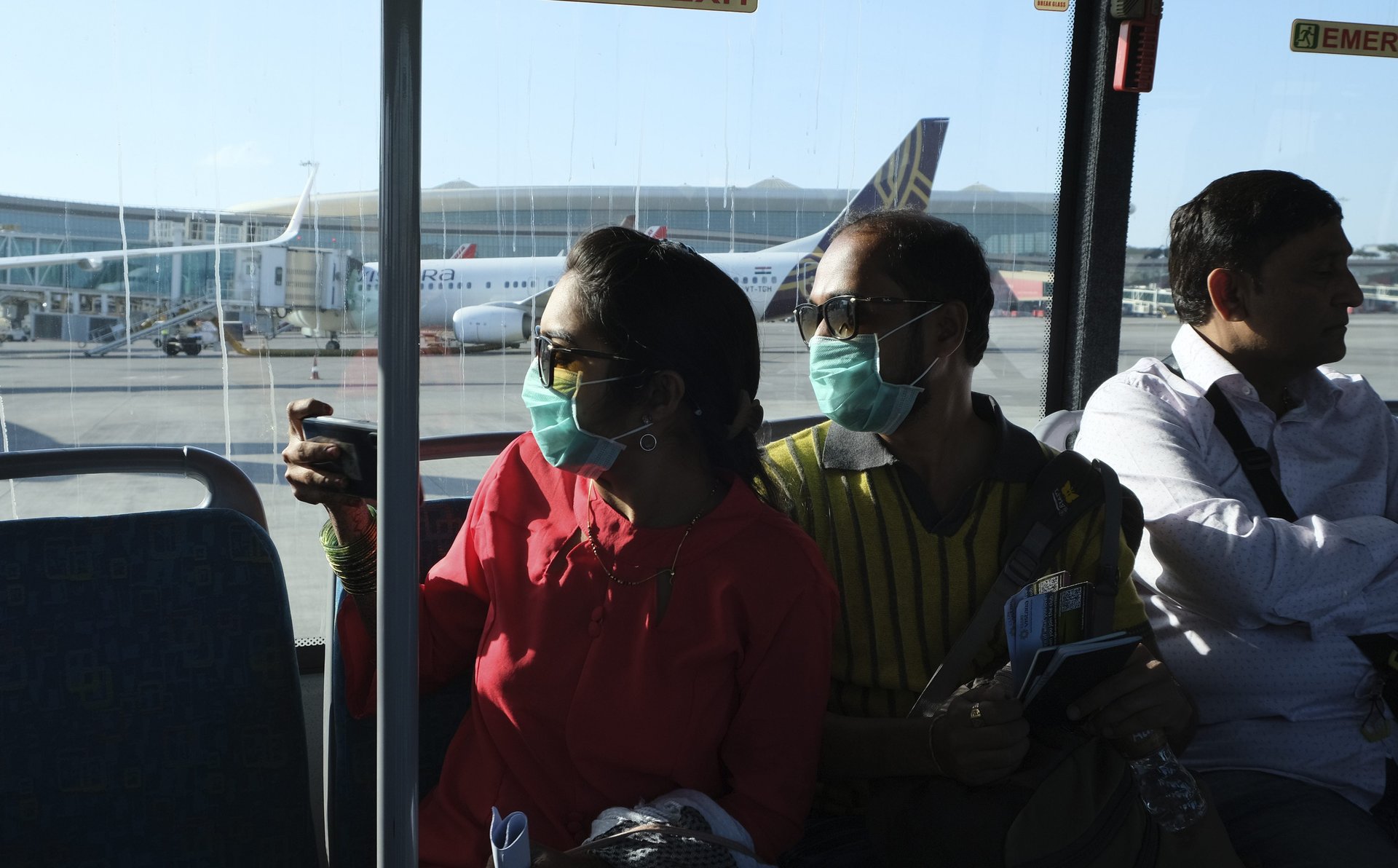How Indian airlines are dealing with the Covid-19 pandemic
Airports have become the first line of defence in India’s battle against coronavirus.


Airports have become the first line of defence in India’s battle against coronavirus.
While many nations have issued various travel bans, India’s also cancelled all visas till April 15.
If you are among the millions of anxious passengers who simply can’t avoid flying, let Quartz help you with what to expect.
Low-budget carrier SpiceJet is making sure that all its check-in counter staff, boarding pass handlers, and the employees coming in direct contact with passengers should use sanitisers regularly. It is also focussing on providing enough personal protective kits (PPE) on its flights to prevent the spread of the virus and has directed its staff and cabin crew to wear masks and gloves before entering the aircraft.
Additionally, SpiceJet is treating its all international flights with disinfectants post-disembarkation. “During night halts, aircraft are subjected to extensive deep cleaning,” the airline said while listing out the safety measures.
Another carrier, Vistara, a joint venture between Tata Sons and Singapore Airlines, said it is continuously monitoring flights for risks.
“If any suspected case comes to our attention either voluntarily or reported/observed by our crew, our operations and maintenance control centres are immediately informed for necessary action, including immediate sanitisation,” an airline spokesperson told Quartz.
India’s largest airline, IndiGo, is following Airport Health Organization (APHO) guidelines and taking preventive measures. “We would also advise all passengers to follow the guidelines provided by the health ministry to safeguard themselves,” the airline said in an email.
On March 6, the directorate general of civil aviation (DGCA) issued guidelines, asking aviation personnel to be examined for cold, fever, and other symptoms before being subjected to breath analyser tests.
Air India and GoAir did not respond to Quartz’s queries.
Still not enough?
Even these precautionary measures may not assure wary flyers enough.
“Over the past few days, on a week-on-week basis, we have seen a 15%-20% decline in our daily bookings,” an IndiGo spokesperson said in a statement on March 12. Quarterly earnings, the statement said, could be badly hit.
India is also witnessing a drop up to 30% in international visitors.
On March 12, SpiceJet chairman, Ajay Singh, acknowledged the pressure on Indian aviation. However, his statement was optimistic about the sector’s potential. “I firmly believe this is an opportunity for SpiceJet, for the government, and the aviation ecosystem, to create more efficient and viable structures for the growth that lies ahead,” he said.
The airline, on March 12, announced an offer, including benefits on the lines of a full-service carrier. Under its spring sale, SpiceJet will provide free meals and seat under an all-inclusive one-way fare on select international and domestic routes.